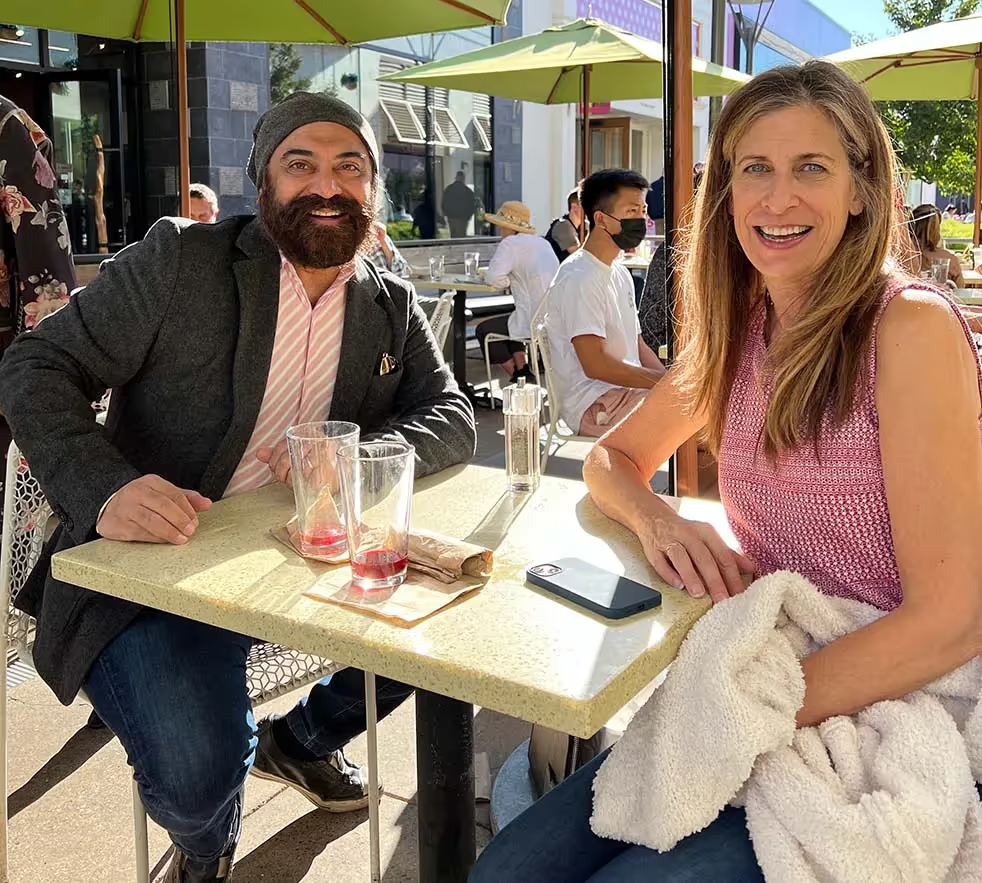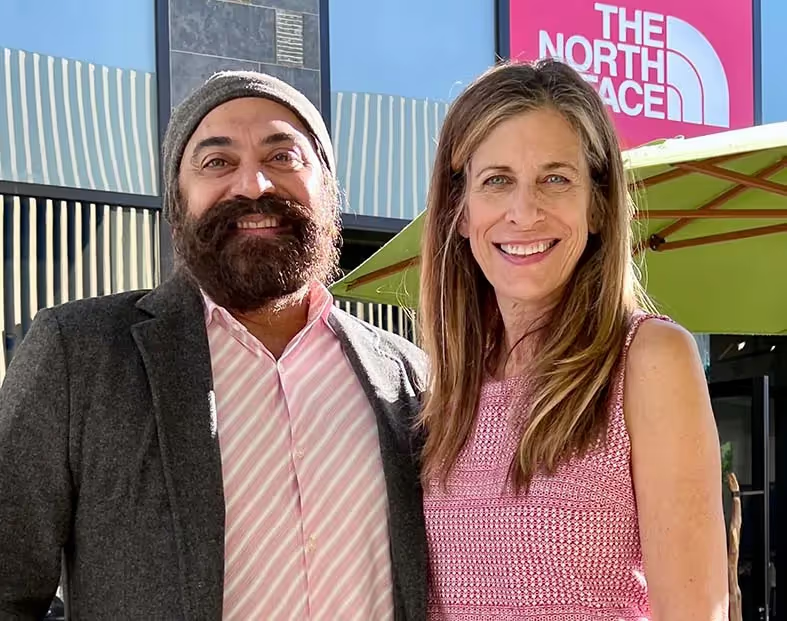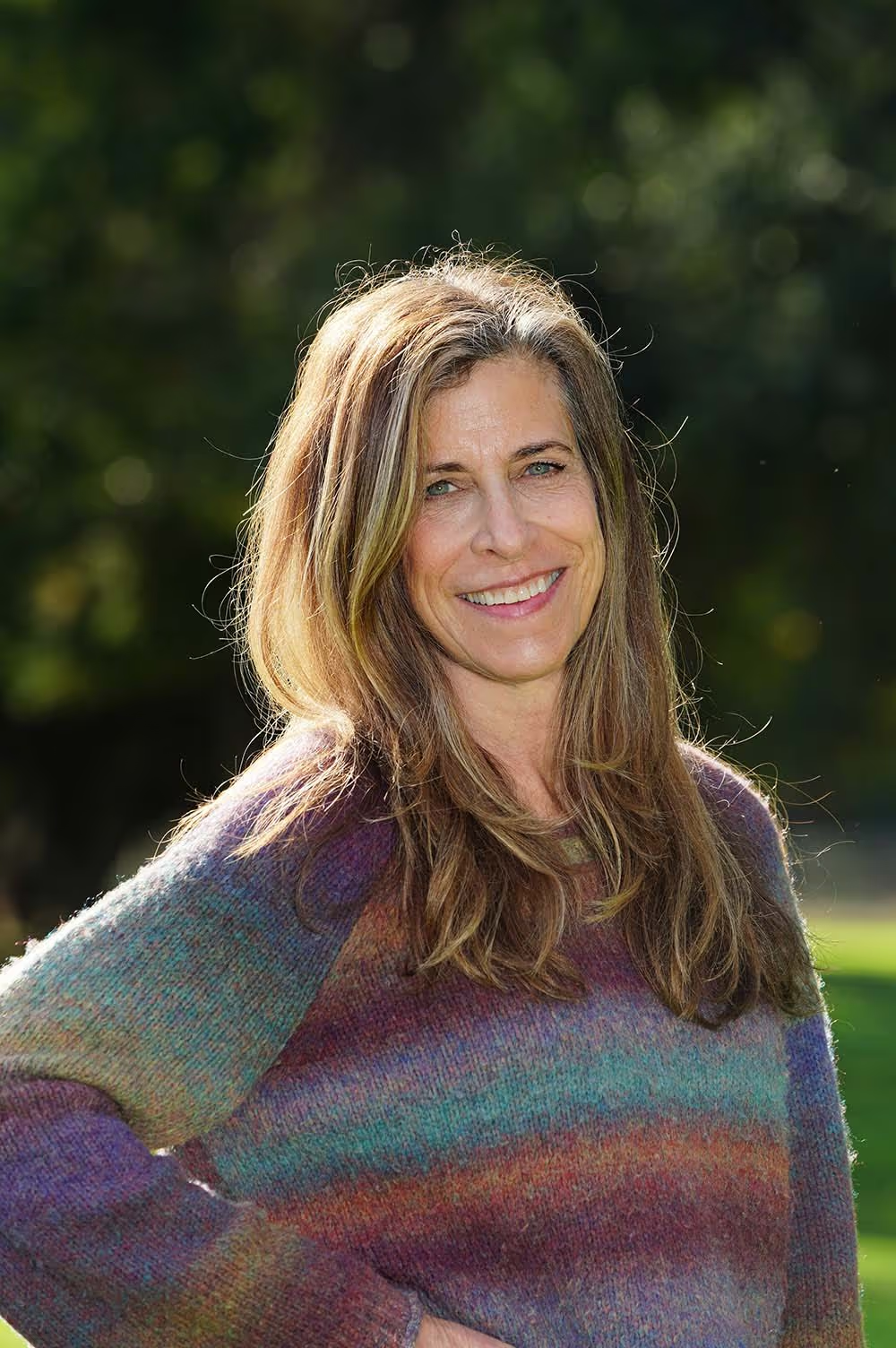
Dickey Singh:
I was on the C-team at CustomerSat a decade ago, and we served Apple, SAP, eBay, Salesforce, Nokia, BEA Weblogic, Oracle, Business Objects, Yahoo, and several other marquee customers.
You were on the board of CustomerSat. Thanks to John Chisholm, the CEO of CustomerSat, for reconnecting us after so many years.
By the way, did you read his book?
Marie Alexander:
No - I fear I have not read it.
Dickey:
Oh! I'll send you a copy, and let me give you one reason to read it. I am an entire chapter in the book! Chapter 12. Ha Ha. "1 + 1 = 3: Choosing the a Cofounder and Team Members"
CustomerSat was, of course, acquired by MarketTools, (after receiving bids from Salesforce, IPSOS, ConfirmIt, and several others), giving MarketTools a foothold into the SaaS world. I think MarketTools is now part of FocusVision Forsta — all our customers are listed on their website.
Thank you for being an active and influential CustomerSat Board Member!
Dickey:
I want to learn about you.
So, who is Marie Alexander?
Marie:
Yikes, that's quite an opening question.
I'm reminded of my coursework in Music Therapy. Literally, every final exam contained the question –
"Know thyself, To thine own self be true – Using the tools for therapy we have studied in this quarter explain whether you believe this to be possible".
I have often wished I had saved my answers – I do recall I fluctuated on my beliefs around self-knowledge.
That said, I am a blessed person. I have had an excellent tech career spanning industries from Electronic Data Interchange, Customer Relationship Management, IP Intelligence, Daily Fantasy Sports, Encrypted Key Management, Medical Devices to support critical care protocols, and Customer Success.
I've had the opportunity to run engineering, product management, all areas of services, marketing, strategy and corp dev, and ultimately the CEO role.
In each, we created something new and innovative – that had not been done before.
Ultimately that is not why I chose the term blessed, nor is it who I am. I have been blessed to be a working mom. My life has been enriched through shared experiences with others along that path.
I remain curious, energetic, compassionate, and recently focused on my original concept.
Dickey:
So you are a celebrity.
You invented Customer Success and Customer Success Manager. Tell me why and what was the plan?
Marie:
When I first conceived of the title, Customer Success Manager, my only intent was to differentiate our company and improve our revenue and margins. Little did I know that the concept would take hold and generate an entire industry. I never much thought about the fact that I had conceived of something of such eventual magnitude. Only after Mikael Blaisdell wrote his article on the history of Customer Success was I credited with its origin.
Our original intention has somewhat been "lost" over the years.
Dickey:
What was the intention? Where did Customer Success fit in within the organization?
Marie:
Customer Success was not a department for us.
It was a culture.
It was an attitude.
It was a corporate goal.
The Customer Success Manager was merely the individual tasked with keeping that goal at the forefront of the company.
A few articles have incorrectly reported that we had a churn problem, which was the impetus to create this program. Nothing could have been further from the truth. It is essential to understand the culture and environment.
Dickey:
I remember you mentioning this when Annette Franz, my friend, wrote about cast.app, you, and Wayne McCulloch's book on Forbes. I had just reconnected with you then.
Thank you for the clarification. Would you please tell us more?
Marie:
Vantive was focused on customer satisfaction from inception. Bill Davidow was on our board and had written a powerful book — Total Customer Service.
We touted 100% customer referenceability.
However, the concept was often misunderstood! Every customer is a reference for every company. It is essential to be aware of this. We have to focus on ensuring that the reference is positive.
We were focused not on just customer satisfaction or customer loyalty – our goal was customer advocacy – the point at which one is willing to plead your cause or build your case with someone else. We considered this the unearned increment and the ultimate focus of CRM programs.
Dickey:
The concept of every customer being a reference is powerful.
Customer Satisfaction, Customer Loyalty, and Customer Advocacy are so intertwined.
Growing the base of customer advocates is the ultimate reward for a company.
Dickey:
I have a small surprise for you. A signed copy of my favorite book on Customer Success, "The Seven Pillars of Customer Success," by my friend and mentor Wayne McCullogh, a leading expert on Customer Success. He was a Customer Success EVP, SVP, or CCO at Kony, Peoplesoft, Salesforce, Looker, and Google Cloud, and now is the CCO of WalkMe.
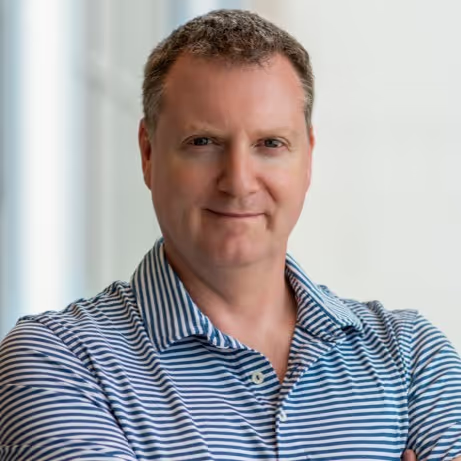
Wayne nailed it with a very thoughtful question when I told him I was meeting you and asked him what I should ask you?
I have to open my notes app on my phone, and hopefully, the recording continues uninterrupted.
Here is his question.
On behalf of Wayne McCullogh:
As the "mother" of customer success, watching your baby grow into a young adult must be very rewarding.
But like all "parents," you've seen the past and have hopes for the future.
What have you seen in the past with CS that has been positive, what missed opportunities have there been, and what does the future really look like for CS?
Marie:
It's rewarding to see that it has grown into something so expansive. I most like seeing the passion and enthusiasm expressed by those focused on customer success. The intent is directionally correct, but it can be so much more for many organizations.
I suspect what causes me the most angst is that Customer Success became a role rather than a philosophy or a corporate goal. It defined us at the core, and some could have almost called it a religion for us. Instead, it should be built into the product, built into each of the processes in your company. Customer Success Management is merely ensuring the focus.
In some ways, Customer Success Management should be much like true product management. When I ran product management, my success was defined by how well my product performed in the market. I had to coordinate every function within the company to design, develop, test, market and deliver that product. No one reported me. I had to accomplish it through leadership.
A Customer Success Manager has to ensure that the company is organized, the product is designed, the service is available to ensure that the customer will succeed in their goals by implementing the product being sold. It is not just an account manager or project manager role. The reach of this is comprehensive. They have to ensure this success with few direct reports. It cannot be accomplished if the infrastructure is not there to do so.
Dickey:
Nice. Customer Success is certainly not a project or account management role. Your remarks are making me think of it as lower-case customer success versus Customer Success.
Had you known that Customer Success would become a revolution, what would you have done differently?
Marie:
My initial cynical reaction is that I would have trademarked it. Then retired!
I don't know that I would have done anything differently. My career progressed, and my life has been blessed in other ways. I suspect I have quite an opportunity now to influence this philosophy's evolution, perhaps.
As I think of our approach at Vantive, I would better understand its reach and the total responsibility to guide the entire company - much like I mentioned about a product management role.
On behalf of Emilia D'Anzica:
I asked another friend, Emilia D'Anzica, CEO of Growth Molecules about what to ask you. By the way, Annette interviewed Emilia for an article that was also published on Forbes.
Both you and cast.app were mentioned in the article: Strengthening Relationships through Customer Success.
Emilia sent me a text and was curious why you have been so low-key when you have been so influential to Customer Success?
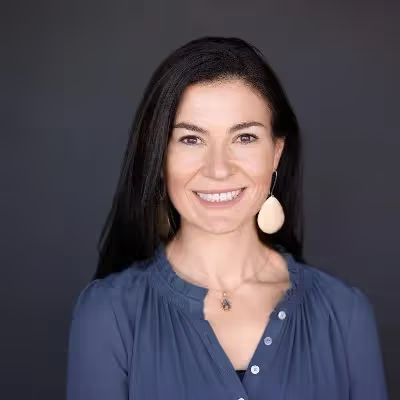
Marie:
I never did it for my own career growth. Maybe I should have, but it never occurred to me. I recall when I first asked a mentor if he felt I was ready to be a CEO, and his response was yes, but that my most significant shortcoming for that role was that I wasn't a sociopath.
Now that my children have launched and I have seen career success, I have been able to realize that perhaps the most rewarding years were those in which I was building and defining services programs. As people have reached out lately, my specific passion in this area has returned. I am hoping to emerge a bit more and explore shared visions.
Dickey:
There is a lot of conversation these days that Customer Success should have a "seat at the executive table" and "be of value" to executives. Several podcasts, webinars, and blogs talk about the need and how Customer Success should get a seat at the executive table.
My take is simple. Customer Success helps increase Net Revenue Retention directly. So any effort, process, person, or team that helps increase NRR — reduce logo and revenue churn, increase renewal, add-on, up-sell, and cross-sell revenue — will get the executive team's attention.
What was it like for you? I know you mentioned that you were on the executive team last time we met for drinks and dinner in Los Altos.
Marie:
I held the position of Customer Controller for the company and was empowered to escalate any customer issue to the board should I not find sufficient support from the executive team in my efforts.
Dickey:
Wow – the board! That is customer-first forward thinking!
Marie:
I will note that I never needed to do so.
We provided our customers with my personal cell phone and home telephone number and that of the CEO. I had only one customer use it in a 10-year stint, and that individual was incredibly apologetic. Knowing that I put myself out there to be accountable was a strong message to my team, the company, and the customer. Everyone knew my personal level of commitment.
Dickey:
Yes, that works so well — sharing your phone number with customers. Customers rarely use it, but they know they have the option to get to you. Such tactics are now a norm for startups.
I have to say we raised earlier this year. I had to humbly request some investors to lower the amount of investment or participate in the uncapped community round. I noticed I took money from everyone I was on texting terms.
Marie:
Customer Success was a part of our comprehensive plan. Everything we did was designed to ensure success. The specific customer success manager position resulted from a heated debate on account management and where the responsibility belonged. Most vendors would quote an account manager in their proposals. My argument was that this was our responsibility and should be handled as a part of our services process. The concept was that if we could control the implementation, not only would we increase satisfaction and revenue, we would also ultimately decrease our expenses. The entire concept was about prevention and correct expectation setting.
Dickey:
This is key. We raised by using "Make Customer Success a profit center." I told VCs that automating Digital Customer Success can help generate enough revenue to cover the cost of dedicated CSMs for high-touch customer success. I now see customer success as a line item, and in certain cases, it makes sense because people value what they pay for.
So, How did CS start at Vantive?
Marie:
Once I convinced John Luongo, our CEO, to test the program, I set out to find the right skillset and temperament. Personality was critical in this role. We were designing something new, and it needed someone who could diplomatically tell a customer no. This position was not merely about advocating for a customer in an escalation – or about making sure they renewed their contract. It was about knowing exactly what had to be done in that account to ensure success and ROI. This person had to aggregate employees of Vantive and the customer to form one virtual corporation driven to the defined goals.
The CSM was compensated for a customer's success – not our revenue. However, the program's success was based on increased revenue, referrals, and profit. Therefore, for the CSM to succeed in these efforts, the company itself had to be designed to deliver.
Dickey:
Did CS take over from sales? Was there a handover?
Marie:
There was a coordinated effort in the processes and systems. This approach allowed us to introduce a Customer Success Manager early in our sales process. The sales rep could boldly claim that the CSM is why you will buy from us! The CSM is the person assigned to ensure you are successful with your implementation.
Dickey:
What was the customer onboarding process like?
Marie:
Once a customer was signed, a customer success team was assigned and introduced. The team included a Customer Success Manager, an executive sponsor, a tech support lead, the consulting lead, and a product management representative.
A kick-off meeting was scheduled in which the teams from both organizations were introduced.
Dickey:
Wayne mentioned a while back that Salesforce does not have Customer Success Managers. They have a group. This is in line with what you mentioned, a Customer Success Team.
Marie:
In this meeting, support policies and procedures were reviewed, the contract SOW was reviewed, and expectations were set. The customer knew exactly what had been purchased and what service was included. They also knew all the additional services available should we reach the boundaries of their contract. We assured them we had it covered but that some things would be on a time and materials basis.
Eventually, we added to this by working with the customer to define their success measurements. Amorphous goals of success can never be met. To be honest, we were a bit taken aback at the angst this initially introduced. Customers were not used to being held accountable for defining and measuring the success of a project. In addition, we began to ask them what they most expected of us to achieve that success. If their expectations were out of line, it was the correct time to reset them. We literally wrote these expectations and recorded them in an expectation module we created in our own implementation of Vantive CRM. The entire company – ours and theirs could view these expectations at any time, and we could review our progress in meeting them. With a six-month review process, we would re-evaluate these and reset if we found other actions more effective or efficient in their success.
Dickey:
Looking back, how successful was the CS program?
Marie:
This program was wildly successful for Vantive. Initially, I has enough budget to hire a CSM for every account. After one year, we found that the accounts we had assigned CSMs showed a 300% increase in revenue. The CSM would plant seeds for new uses, new modules, and services – and would simply call the sales rep back in to close the business.
Dickey:
Nice. Now we have terms for it. Up-telling and cross-telling from the vendor's point of view — thanks to Wayne. And we at cast.app call them personalized recommendations from the customer's point of view.
Marie:
At the core, the relationship with this individual was based on trust. Trust that this individual had the customer's goals and success at the forefront of all their activity and were strong enough to manage and lead them to it.
Dickey:
I mentioned to my friend, Jeff Heckler (Director of Customer Success Programs at MarketSource, a Top 25 CS Influencer, and previously global head of CS at Pipedrive) that I was meeting you again and asked if he wanted to ask anything. He asked two questions.
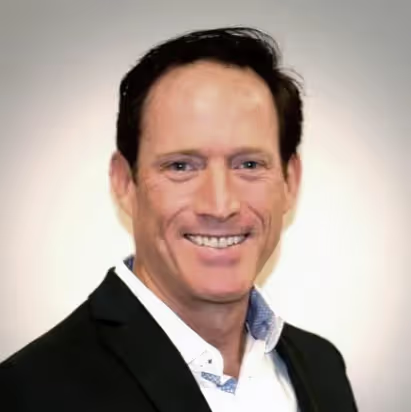
On behalf of Jeff Heckler:
How do you see CS principles and practices being advanced beyond its classic station rooted in technology or, more recently, SaaS?
Dickey:
I feel I should clarify a few things here. You created Customer Success well before SaaS existed. Salesforce popularized it for SaaS. But CS is Not Just for SaaS.
For his second question, he also asked the same question as Wayne about the future of CS in your eyes. He worded it like this.
On behalf of Jeff Heckler:
If we fast forward 5 and 10 years, respectively, what do you foresee as the significant challenges and advancements for CS?
Dickey:
What else would you say to Jeff?
Marie:
From my perspective, Customer Success was never tied to any specific type of technology.
At its core, it should be about delivering a product or service in such a way that its use successfully accomplishes its intended use. The future of it should absolutely have a seat at the executive table. While the result is dependent on a daily tactical function, success is not probable if the concept is not strategic. The VP of Success - or Chief Success Officer - must have a broad understanding and grasp of the entire business and work to guide all aspects to ensure alignment around success.
Dickey:
I like the sound of the Chief Success Officer. Similar to Chief Customer Officer.
Marie:
There are two aspects to customer success.
The design of customer success into the fabric of a company, and then the individual that manages and ensures the company adheres to the principles and processes.
Dickey:
Ryan Seams from Mixpanel asked the following two question. He runs Customer Success at Mixpanel as their Senior Director and thinks deeply about Customer Success in PLG companies and specifically using CS to convert freemium customers. He has an incredible Starbucks coffee mug collection, and I expect Mixpanel to become a cast.app customer soon.
So, again, reading his question from my notes app.
On behalf of Ryan Seams:
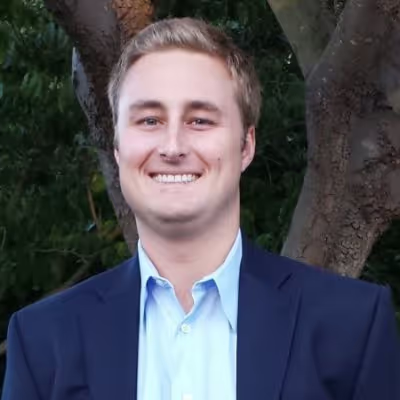
How have you seen CS evolve into a company-wide effort?
What org structure makes this most effective?
Marie:
It happens one of two ways - either a visionary CEO or a charismatic visionary running Customer Services and Success. I think my background in product management equipped me with my mission.
The org structure should have Customer Success with a seat at the executive table.
Customer Success should not report to Customer Services — Services should report to Customer Success.
Dickey:
So, Annette — you know her, she wrote about you and cast.app on Forbes here and here — asked few executives at Delta Airlines, Sprinklr, and Zendesk. Here are the top three questions she put together.
So, here is her first question.
On behalf of Annette Franz:
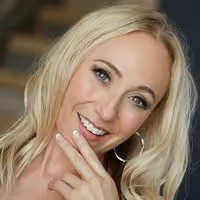
What are the right skillsets for someone to perform the CSM role in your mind?
Marie:
Ultimately, it would be best to find a confident, knowledgeable, diplomatic, deductive individual. In my model, the role is a senior individual that can lead — truly lead — and influence a multifunctional team. It isn't always about an individual having a specific set of skills because in managing anything, you can add any skill to your team. The Customer Success managers know how to do that.
At Drishti, we planned to have a matrixed Success Organization - with each of the Success Managers having an area of specialization. Data Analyst, Financial Modeling, Lean Manufacturing, Machine Learning, etc. They will have each other's support as they form individual teams for a customer's success plan and process.
On behalf of Annette Franz:
Was it hard to find people to take this role?
Marie:
Initially, it was somewhat difficult because I asked people to take a leap of faith as I created a new role. It continues to be rather difficult, but I tend to take an approach where I am looking at individuals and personalities. For example, my most recent interviews have been with someone who has been a corporate controller and another who has been a product manager. I continue to ask people to take a leap of faith to make an interesting career shift. And I have to evangelize what the role really entails and how critical it is to corporate growth.
On behalf of Annette Franz:
With such a shortage of CSMs and thousands of open positions, what are some alternatives for hiring CSMs?
Marie:
Part of this is an alternative, but part of it is about extending the reach of the CSM's you do have. Communication with customers is the key for CSMs, and we can automate much of the communication. Tools that assist in that communication process become critical.
Automate mundane tasks and use CSMs for functions for which you do not have automation.
Elevate the level of CSMs. Help them become better problem solvers and strategic advisors.
As you find patterns, document them and reuse them, so you are not reinventing the wheel with every account.
A starting point is replicable playbooks. Next, think about what parts of the playbook can be automated and sent directly to customers.
I'll leave you with some questions.
Dickey:
Thank you for those thought-provoking questions, Marie. I am so glad that we reconnected after a decade. Thank you for all the advice. Thank you for agreeing to do this interview and driving to Stanford.
The Customer Success community is thankful for your contributions to Customer Success.
